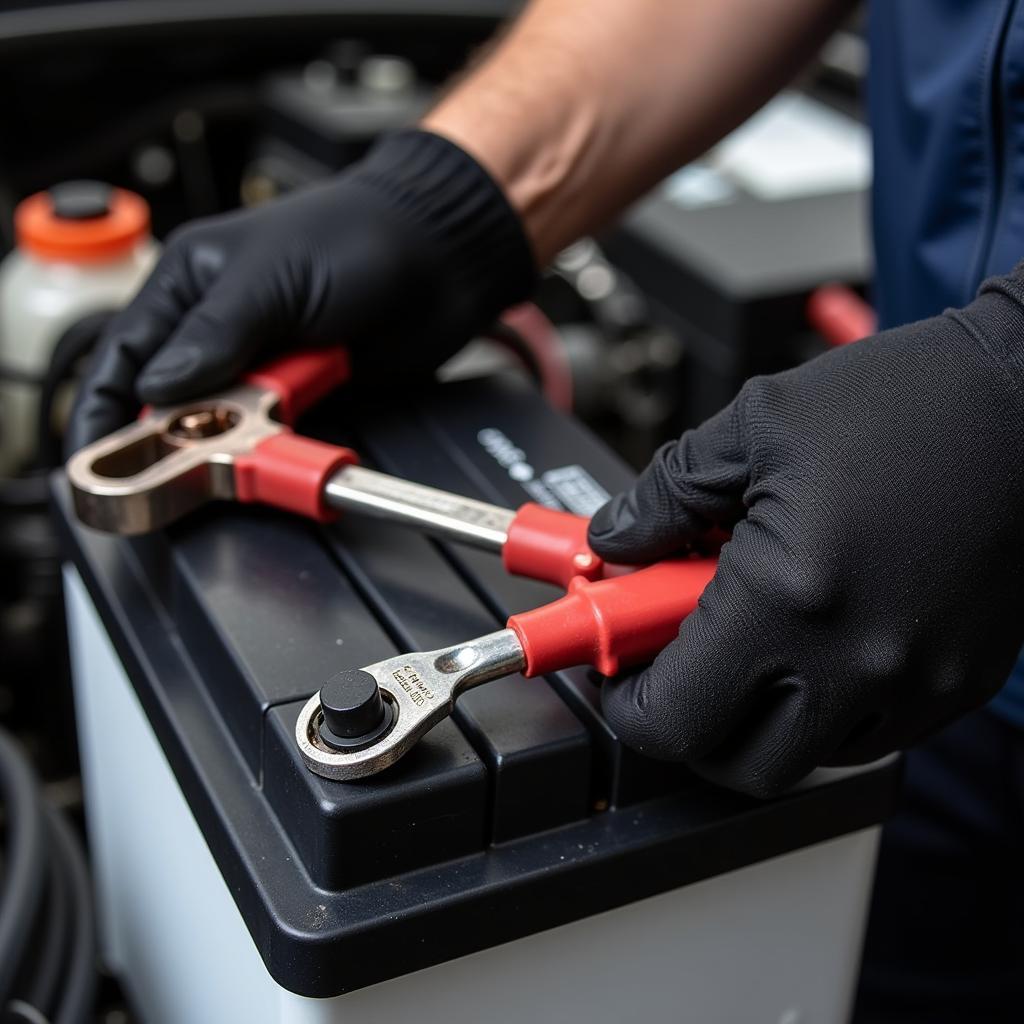Good car maintenance is crucial for ensuring the longevity, reliability, and safety of your vehicle. Just like our bodies need regular check-ups, our cars require consistent care to prevent breakdowns and costly repairs down the line. Whether you’re a seasoned car enthusiast or a new car owner, this comprehensive guide provides essential car maintenance tips to keep your vehicle running smoothly for years to come.
Importance of Regular Car Maintenance
Regular car maintenance goes beyond just keeping your car in top shape; it also impacts your safety and your wallet. Neglecting routine checks can lead to dangerous malfunctions and exacerbate wear and tear, ultimately leading to more expensive repairs.
Essential Car Maintenance Tips
Here’s a breakdown of crucial car maintenance tasks every car owner should know:
1. Regular Oil and Filter Changes
Oil is the lifeblood of your engine, lubricating moving parts and preventing overheating. Over time, oil degrades and loses its effectiveness.
- Frequency: Consult your owner’s manual for specific recommendations. However, as a general rule, it’s good practice to change your oil and filter every 3,000 miles or every three months, whichever comes first.
- Benefits: Regular oil changes improve engine performance, increase fuel efficiency, and prolong engine life.
2. Tire Maintenance and Rotation
Tires are your car’s only point of contact with the road, making their condition vital for safety and handling.
- Tire Pressure: Check your tire pressure monthly and before long trips. Use a reliable tire pressure gauge and inflate tires to the recommended PSI (pounds per square inch) listed in your owner’s manual.
- Tire Rotation: Rotate your tires every 5,000 – 7,000 miles to ensure even wear and tear.
- Tread Depth: Regularly inspect tire tread depth using a tread depth gauge or the penny test. If the tread is worn down, replace your tires promptly.
- Benefits: Proper tire maintenance ensures optimal traction, improves fuel economy, and extends the lifespan of your tires.
3. Brake Inspections and Maintenance
Your braking system is critical for safety.
- Frequency: Have your brakes inspected at least once a year or if you notice any unusual noises or vibrations when braking.
- Brake Pads and Rotors: Brake pads and rotors wear down over time. If you hear a squealing or grinding noise when you brake, it’s time to have them checked and potentially replaced.
- Brake Fluid: Brake fluid is hygroscopic, meaning it absorbs moisture over time, which can reduce its effectiveness. Have your brake fluid flushed and replaced according to your owner’s manual schedule.
- Benefits: Regular brake inspections ensure optimal stopping power, preventing accidents and ensuring your safety on the road.
4. Fluid Checks and Top-offs
Your car relies on various fluids to operate smoothly.
- Coolant: Check the coolant level regularly and top it off when necessary. The coolant prevents your engine from overheating.
- Power Steering Fluid: This fluid ensures smooth steering.
- Windshield Washer Fluid: Always keep your washer fluid reservoir full, especially before long trips and during seasons with frequent rain or snow.
- Transmission Fluid: Have your transmission fluid checked and changed according to your owner’s manual.
- Benefits: Maintaining proper fluid levels keeps your car running at optimal temperatures, ensures smooth operation of essential systems, and prevents costly damage.
5. Battery Care
 Checking car battery terminals
Checking car battery terminals
Your car battery provides the initial power to start your engine.
- Terminal Cleaning: Periodically clean battery terminals to prevent corrosion. You can use a mixture of baking soda and water for cleaning.
- Inspection: If your battery is more than three years old, have it tested by a mechanic to assess its health.
- Benefits: Proper battery care ensures reliable engine starts and prolongs battery life.
Expert Insight
“I’ve seen countless times where neglecting basic car maintenance snowballs into major, expensive repairs,” says John Smith, a certified automotive technician with over 20 years of experience. “Sticking to a regular maintenance schedule is the most cost-effective way to keep your car running smoothly and avoid those major headaches down the line.”
Importance of Owner’s Manual
Your car’s owner’s manual is your best friend when it comes to car maintenance. It provides specific information regarding your car model’s maintenance schedule, recommended fluids, and other essential details.
Conclusion
Good car maintenance is an investment that pays off in the long run. By following these essential tips, you can extend the life of your vehicle, ensure a safer driving experience, and avoid unnecessary expenses. Remember, a little preventive maintenance goes a long way in keeping your car running in tip-top shape for years to come.
Need help with car maintenance or have a specific issue you need resolved? Contact AutoTipPro at +1 (641) 206-8880 or visit our office at 500 N St Mary’s St, San Antonio, TX 78205, United States.






Leave a Reply